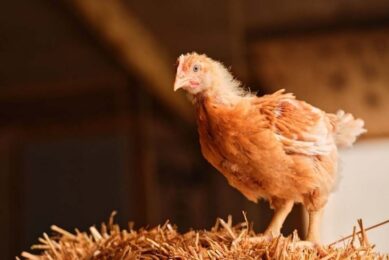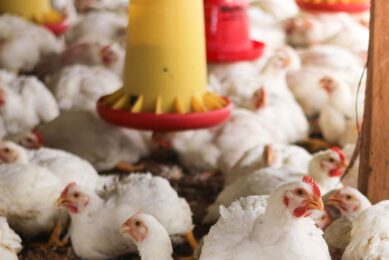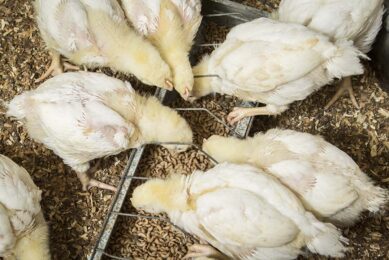Effect of litter type on pododermatitis in male broilers
The Institut für Tierschutz und Tierhaltung of the Friedrich-Loeffler-Institut in Germany investigated the effect of litter type on the prevalence and severity of pododermatitis in male broilers.
During the course of two trial periods on broilers (Ross 308), the effects of 5 different types of litter (chopped straw, wood shavings, spelt glumes, Pelletinos, HygieneWood-Shavings) on the development of pododermatitis and animal performance (body weight, feed conversion, mortality) were investigated.
Pelletinos are for sale under the name Pelletino Strohstreugranulat G. HygieneWood-Shavings is a special product and currently not available on the market. Male broilers were kept under practical conditions (feeding, light program) for 35 days.
Foot pad lesions could already be observed at the first assessment on their 7th day after hatching. Broilers kept on chopped straw showed in both trials the highest score (trial 1: 1.50; trial 2: 1.58). Animals reared on Pelletinos (trial 1: 0.59; trial 2: 0.17) followed by HygieneWood-Shavings (trial 1: 0.63; trial 2: 0.47), wood shavings (trial 1: 1.30; trial 2: 0.71) and spelt glumes (trial 1: 1.13, trial 2:0.93) showed significant lower lesions.
During the second trial, the average body weights were significantly higher while feed conversion was lower. The mortality on the other hand showed no significant differences between the trials. Groups kept on Pelletinos showed the best foot pads and the highest body weights in both trials at the end of experiments. The investigation showed that the prevalence and the severity of pododermatitis as well as the performance could be influenced by various types of litter. Chopped straw which is standard for the broiler industry in Germany, seems to be the least suitable variant in our study.
[Source: Berl Munch Tierarztl Wochenschr]
Join 31,000+ subscribers
Subscribe to our newsletter to stay updated about all the need-to-know content in the poultry sector, three times a week. Beheer
Beheer








 WP Admin
WP Admin  Bewerk bericht
Bewerk bericht